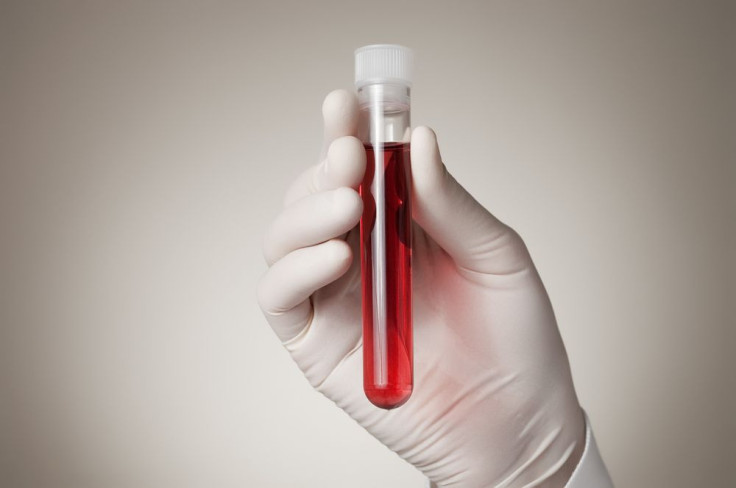Blood Test Accurately Predicts Risk Of Death: Clues Found In 4 Biomarkers In Blood

It’s a test that will surely make anyone who takes it more anxious than a calculus pop quiz. Scientists have discovered that four specific biomarkers in the blood of anyone, whether they’re healthy or not, can predict their risk of dying within five years. Yet, even though the blood test sounds like it would make a person anxious — it certainly would — it also has the potential to help save many lives, as people find out that they must adopt a healthier lifestyle.
The American Cancer Society estimates that there will be over 1.5 million cancer diagnoses and 585,000 cancer deaths in 2014. If the blood test can find these biomarkers — molecules in the blood indicating an abnormality — then patients could be able to undergo preventative treatment for not only cancer but a whole list of other diseases, including heart disease and diabetes long before they progress to a dangerous point. And although the test proved accurate, the researchers still say that there’s a lot of work left to be done. “If the findings are replicated then this test is surely something we will see becoming widespread,” said research professor Markus Perola, of the Institute for Health and Welfare, according to The Telegraph.
For the study, the researchers first looked at 9,842 blood samples from an Estonian group of participants. From that group, 508 people died during over the course of five years. In these people they looked at a total of 106 biomarkers, narrowing them down to the four — plasma albumin, alpha-1-acid glycoprotein, very low-density lipoprotein particle size, and citrate — that appeared in higher levels than the rest among those who died. They then repeated the study with another 7,500 Finnish participants and found similar results.
“What is especially interesting is that these biomarkers reflect the risk for dying from very different types of diseases, such as heart disease or cancer,” said Johannes Kettunen, a researcher from the Institute for Molecular Medicine in Finland, according to The Daily Mail. “They seem to be signs of a general frailty in the body.” To assess exactly how much risk there was, the researchers created an index of the levels of the four biomarkers. Participants whose levels of the biomarkers were in the top 20 percent were 19 times more likely to die over five years than those in the bottom 20 percent, The Los Angeles Times reported.
Surely, the test would be useful. But if it were to become a regular part of medical practice, some ethical questions would need answering. Some insurers, for example, might see it as an opportunity to raise premiums for people who score higher on the biomarker index. On the other hand, “would someone want to know their risk of dying if there is nothing we can do about it?” Perola said, according to The Telegraph. These have yet to be answered. In the meantime, the researchers plan to continue their work by looking for any correlating factors between the four biomarkers.
Source: Kettunen J, Wurtz P, Fischer K, et al. Biomarker Profiling by Nuclear Magnetic Resonance Spectroscopy for the Prediction of All-Cause Mortality: An Observational Study of 17,345 Persons. PLoS One. 2014.
Published by Medicaldaily.com



























